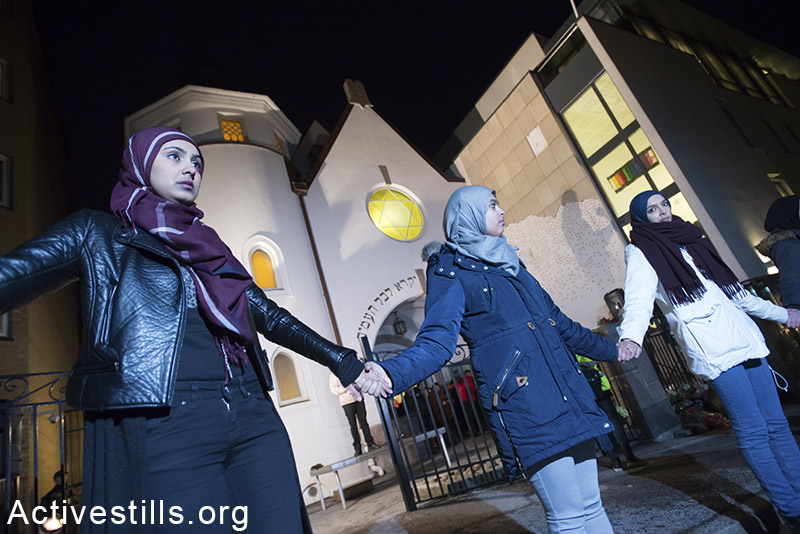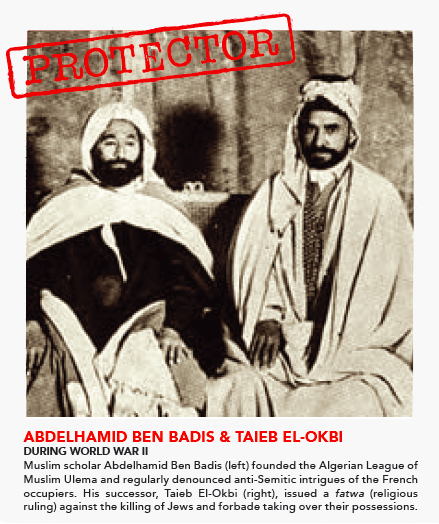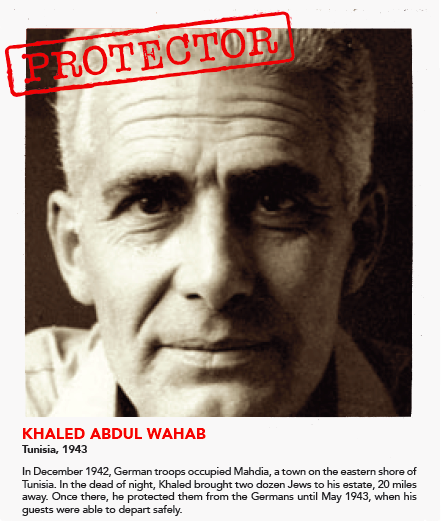Muslims once protected Jews from Nazi persecution. Today, American Jews are standing up for Muslims in the face of President Trump’s draconian ban. These are everyday stories of resistance — even if they are hardly reported.

Ryan Rodrick Beiler / Activestills.org
Over one million dollars were collected by Americans who were disgusted by the recent arson attack on a mosque in Victoria, Texas. The only synagogue in town shared its building with the Muslim congregants who had just lost their place of worship. Inspirational stories of people standing up for each other like these are common, even if rarely reported.
Last week I joined tens of thousands of people protesting President Donald Trump’s Executive Order banning refugees and nationals from seven Muslim-majority countries from entering the United States. I was amazed to see many Jews — people who heard stories from their families about how they were protected during the Holocaust — join the protest. These are young Jews whose grandparents were allowed in America as they fled the mass murder of the Third Reich — whose personal stories caused them to stand up for others who are in need today. These stories lie at the heart of every community that stands up and defends civil liberties.
But stories can also be used to dehumanize the other. A week ago the world commemorated International Holocaust Remembrance Day. It’s a day when we remember that the human race is capable of committing unimaginable crimes against each other. The Nazi regime was able to alter reality and use isolated, threatening stories of the Jewish “other” to create a security-based narrative that demonized Jews, portrayed them as a threat, and ultimately bred hatred against them. However, even many of the countries that opposed Nazism refused to accept Jewish refugees, leading to the death of countless Jews.

However, as we remember these dark moments in our history, we must also remember that when people rise up together, they can create a new reality. Albania, a Muslim majority country is guided by a cultural precept called “Besa,” an Albanian term that loosely translates to “keeping the promise.” It is a moral code that instructs Albanians to protect the stranger among them as much as their own. Albania was the only country in Europe that had more Jews at the end of the war than at the beginning. King Zog I and his people organized to save the Jews by opening their borders, hiding, feeding, sheltering them until the end of the war.
This is not a story about the past. Today we see many examples of individuals and communities who stand up for the other. Jews in the United Kingdom organized a patrol around a mosque to protect Muslims worshippers from attacks; Muslims formed a human chain around a synagogue to protect Jewish worshippers in Copenhagen; Germans opened their homes to refugees; Syrian refugees rushed to rescue Italians after the recent earthquake. We see tens of thousands of Americans protesting in airports to allow refugees to enter the country despite the ban. Even in extreme environments and places of conflict, people have always stood up for each other across division lines.

These personal stories are the best way to fight efforts of spreading hatred between ethnic, religious, and political groups. Indiscriminate hatred becomes possible when we are convinced that a whole group or community is a monolithic bloc that constitutes a threat. Because hatred is emotional, the response to hatred must also engage the heart. Therefore it is important that we highlight the stories that debunk this idea. One campaign that is actively pursuing this goal is ‘I Am Your Protector,’ made up of people who speak up and stand up for each other across perceived religious, racial, and gender divides, highlighting the stories of individuals — regardless of their group affiliation — who stand up for each other in conflict zones.
We are not divided into binaries of Arabs vs. Jews, or Muslims vs. Christians. We are often divided by those who remain silent in face of injustice. I personally have found inspiration in the stories of Muslim protectors, from Iran, Turkey, Egypt, Tunisia, Morocco, Algeria, Pakistan, France, and Albania who stepped in to protect their Jewish neighbors during the Holocaust — knowing full well that they would be executed for defiance against the Nazis. I believe there is no better way to counter hatred than telling a story.

